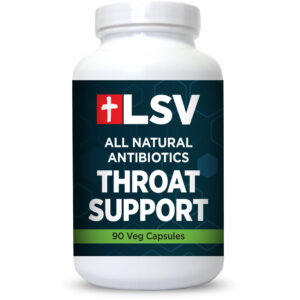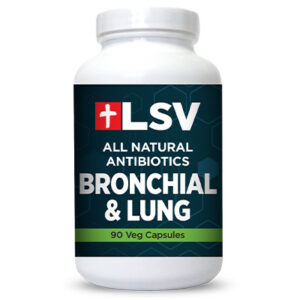Our Company
LSV
SINCE 1992
Founded in 1992, in Winter Park, Florida – LSV Vitamins has been the leader in All Natural Antibiotic supplement sales for over 30 years in the United States.

The Echinacea Effect: More Than an Antibiotic?
Echinacea, a flowering plant related to daisies, has been a popular herbal remedy for centuries, particularly for treating the common cold. But does it truly possess antibiotic effects? Let’s explore what science tells us.
Unlike traditional antibiotics that directly kill bacteria, echinacea’s potential benefits seem to lie elsewhere. Research suggests it may work through several mechanisms:
The Research on Echinacea and Antibiotics
The jury is still out on how effective echinacea is for preventing or treating infections. Some studies show a small benefit for reducing the duration or severity of the common cold, while others show no significant effect.
There’s limited research on echinacea’s impact on antibiotic effectiveness. While it likely doesn’t interfere with antibiotics directly, it’s important to consult with a healthcare professional before taking echinacea if you’re on antibiotics or have a weakened immune system.
Echinacea: A Promising Ally, Not a Replacement
While the evidence for echinacea’s antibiotic-like effects is not as strong as for traditional antibiotics, its potential to support the immune system and reduce inflammation is encouraging.
Using Echinacea Wisely
If you’re considering echinacea, remember:
Here are some studies that explore echinacea and its potential antibiotic properties, while also acknowledging the ongoing research on its immune system effects:
Additional Resources:
The Future of Echinacea Research
More research is needed to fully understand echinacea’s potential as an immune booster and its interaction with antibiotics. However, its long history of use and ongoing scientific exploration make echinacea a fascinating and potentially valuable addition to a holistic approach to well-being.
By no means are we at LSV Vitamins saying do not take what your doctor prescribes, we are just saying that we have an alternative for those who cannot take Antibiotics, afraid of one of the many side effects, or simply want to try an all-natural alternative. We have a large number of people (over 100,000) who take and have taken this at the first sign of a problem, and it works well. As always, consult your doctor.
LS Vitamins – Since 1992
See All of our effective All Natural Products Here
All Natural Antibiotics Cold & Flu
All Natural Antibiotics Sinus Support
All Natural Antibiotics Teen Support
All Natural Antibiotics Tooth & Gum
All Natural Antibiotics Bronchial & Lung Support
All Natural Antibiotics Throat Support
Below are a number of statistics that help describe how antibiotics are currently being prescribed in outpatient settings in the United States and how these practices are contributing to the larger issue of antimicrobial resistance.
The possibility of antibiotic side effects can be frightening, but it is important to remember that their proper use has saved countless lives. Those using antibiotics should report any possible negative reactions to their doctor immediately. In some cases, doctors will have their patients continue using a specific antibiotic if the side effects are mild; in others, the doctor will switch the patient to another drug.
For Over 30 Years, we have 3rd Party Tested each and every nutrient that go into all of our products: Purity & Effectiveness is how are product continually works for Tens of Thousands of our Customers.
*Disclaimer: None of the above statements have been evaluated by the FDA. These products are not intended to diagnose, treat, cure or prevent any disease. As always, consult your physician before taking any supplements. LSV. Individual results may vary.
 Throat Support - Natures Antibiotics
Throat Support - Natures Antibiotics
 Bronchial & Lung Support - Natures Antibiotics
Bronchial & Lung Support - Natures Antibiotics
LSV
SINCE 1992
Founded in 1992, in Winter Park, Florida – LSV Vitamins has been the leader in All Natural Antibiotic supplement sales for over 30 years in the United States.